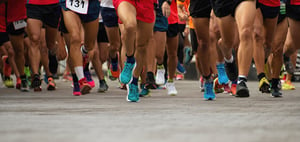Their work began in 2015, at the Boston marathon: in a time span of between one week before and one week after the event, researchers analyzed the stool samples of 15 participants, but also of sedentary people, to be used as a benchmark. They realized that the marathon runners had a particularly high level of Veillonella and, more generally, that the athletes had a much higher concentration of this bacteria than the sedentary individuals.
A series of tests on laboratory animals also confirmed this finding: mice demonstrated a marked improvement in physical performance when they were given the Veillonella bacteria. The US researchers then tried to understand why this type of bacteria was so closely associated with exercise, and they discovered that it is practically the only bacteria, in the human body, that uses lactic acid as its sole source of carbon (one of the substances that are essential for life).
Lactic acid, as we know, is produced in abundance during strenuous physical exercise and, once it goes beyond a certain threshold, becomes detrimental to athletes. So the researchers initially thought that the enhancement of sporting performance was linked to “biological scavenging”, on the part of the Veillonella bacteria, which broke down the excessive lactic acid.
In reality – they then discovered – that the situation was much more complex, and that the Veillonella bacteria played the following role: they discovered that it facilitated the transformation of lactic acid into shorter chain fatty acids, and especially propionic acid, like no other type of organism. The researchers believe that it is this molecule that improves athletic performance.
New studies will now be dedicated to the possible practical application of these discoveries: to the possible use, therefore, of Veillonella bacteria and propionic acid for athletes (under medical supervision), but also for people, like diabetics, who would benefit greatly from physical activity, but are not able to exercise at the level needed to see such benefits.

